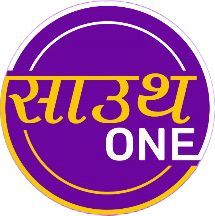In a recent interview, Kalvakuntla Taraka Rama Rao, popularly known as KTR, offered a candid and insightful glimpse into his views on a myriad of political and social issues. The interview covered a diverse range of topics, shedding light on KTR’s perspectives on relationships, government claims, regional dynamics, and the broader state of affairs in India.
KTR’s Dynamic Political Discourse
KTR began the discussion by highlighting the amicable relationship he shares with Jagan, drawing parallels to that of an elder brother.When questioned about his relationship with the central leadership, specifically alluding to Prime Minister Modi, K. T. Rama Rao (KTR) responded by stating that he does not hold any friendship with Modi, He added that he perceives Modi as a high-profile figure who is beyond his immediate reach. KTR hinted that, considering Modi’s stature, any potential friendship could possibly be with individuals like Adani.
The interview then took a decisive turn towards the realm of political dynamics, with KTR openly expressing his anti-BJP stance. His scepticism regarding the credit-taking practices of politicians became apparent, citing the example of UPI, which he attributed to the back era of Manmohan Singh. The conversation intensified as KTR critiqued the claims of the Modi government, particularly scrutinising initiatives such as Startup India.
KTR Addresses Allegations, Embraces Reform
Delving into regional issues, KTR addressed the liquor scam allegations, swiftly dismissing them as baseless. He countered the credibility of those accusing him, categorising them as delusional or fraudulent individuals. KTR also defended his government’s stance on phone tapping, employing sarcasm to emphasise that only those posing a threat to national security faced such surveillance. Shifting the conversation towards electoral bonds, KTR acknowledged the imperfections in politics but asserted a commitment to electoral reforms. He maintained that, while not entirely pristine, his party aspired to maintain transparency at a level comparable to other political entities.
On Dalit Economic Empowerment
On the subject of social issues, KTR passionately advocated for wealth creation and opportunity as pivotal elements in fighting caste divisions. He underscored the importance of communal harmony achieved through economic empowerment, citing the affirmative action of Dalit Bandhu in Telangana as a potential game-changer. Addressing personal matters, KTR revealed a significant increase in his net worth over eight years, attributing this rise to loans he had taken, underscoring the responsibility to repay them.
KTR’s Political Insight, Economic Vision
In a critical assessment of India’s political landscape spanning the last 75 years, KTR held ruling parties accountable for the nation’s developmental challenges. He called for a more equitable distribution of credit and subtly advocated for his party, Bharat Rashtra Samithi, as a potential solution. Finally, KTR commented on Modi’s strategy for achieving a 5 trillion-dollar economy, asserting that Telangana’s performance could serve as a benchmark. He suggested that if other states followed suit, India could make strides towards realising this ambitious economic goal.
Also Read: Telangana Elections: Anti-Incumbency, Kaleshwaram, And More: KTR’s Answers On Key Issues
KTR’s recent interview serves as a significant revelation of his comprehensive vision for India’s political landscape. His adept navigation through topics such as regional alliances, economic empowerment, and political critiques showcases a nuanced understanding of the complexities within the nation. KTR’s emphasis on equitable credit distribution and his comments on Modi’s economic strategy further indicate a broader perspective beyond regional concerns. While addressing controversies with candour and outlining a commitment to electoral reforms, KTR’s interview unveils a politician strategically positioning himself for a more prominent role in the national discourse. The noteworthy insights he shared contribute to the ongoing narrative, hinting at a possible trajectory towards national political engagement.







